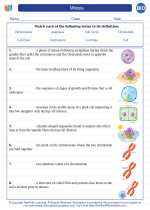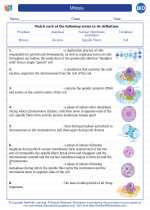What is the Hypothalamus?
The hypothalamus is a small region located at the base of the brain, just below the thalamus. It is a vital part of the limbic system, which is the area of the brain that controls emotions, behavior, and long-term memory.
Functions of the Hypothalamus
The hypothalamus has numerous important functions, including:
- Regulating body temperature
- Controlling hunger and thirst
- Regulating sleep and circadian rhythms
- Controlling the release of hormones from the pituitary gland
- Managing emotional responses
- Regulating sexual behavior and reproductive processes
Regulation of Body Temperature
The hypothalamus acts as the body's thermostat, monitoring the temperature of the blood and initiating responses to maintain a stable internal body temperature. When body temperature rises, the hypothalamus triggers mechanisms to cool the body, such as sweating and increased blood flow to the skin. Conversely, when body temperature drops, the hypothalamus initiates shivering and constriction of blood vessels to conserve heat.
Control of Hunger and Thirst
The hypothalamus plays a key role in regulating feelings of hunger and thirst. It integrates signals from the digestive system and fat stores to determine when the body needs nourishment. Additionally, it helps to regulate the sensation of thirst and the body's water balance.
Regulation of Sleep and Circadian Rhythms
The hypothalamus contains the suprachiasmatic nucleus, which serves as the body's internal clock. This structure helps regulate the sleep-wake cycle and other circadian rhythms, influencing when we feel alert and when we feel sleepy.
Release of Hormones from the Pituitary Gland
As a crucial link between the nervous system and the endocrine system, the hypothalamus controls the release of hormones from the pituitary gland. It produces and releases a variety of hormones that stimulate or inhibit the release of pituitary hormones, thus influencing processes such as growth, metabolism, and reproduction.
Emotional Responses and Sexual Behavior
The hypothalamus is involved in processing and regulating emotions, including fear, pleasure, and aggression. Additionally, it plays a role in sexual behavior and reproductive functions, influencing sexual arousal and the release of sex hormones.
Conclusion
The hypothalamus is a critical brain structure that regulates numerous essential functions, ranging from basic physiological processes to complex behaviors. Its intricate control over the body's internal environment and its integration of nervous and endocrine functions make it a pivotal component of human biology.
[Hypothalamus] Related Worksheets and Study Guides:
.◂Biology Worksheets and Study Guides High School. Mitosis

 Worksheet/Answer key
Worksheet/Answer key
 Vocabulary/Answer key
Vocabulary/Answer key
 Vocabulary/Answer key
Vocabulary/Answer key
 Vocabulary/Answer key
Vocabulary/Answer key
